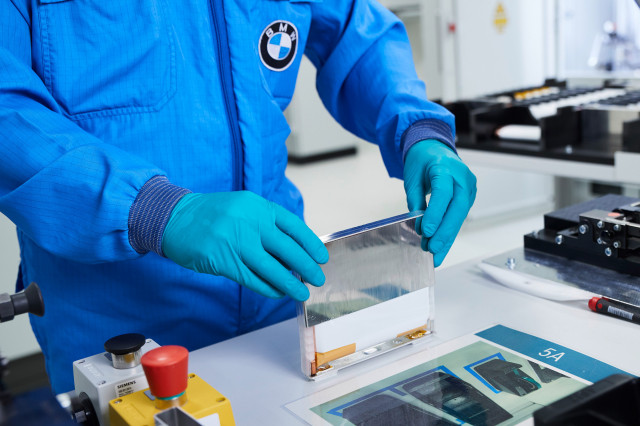
Prototype production of battery modules for BMW Group’s fifth-generation electric powertrain
Teaming with a new Norwegian battery supplier and a Belgian recycling company, BMW is aiming to build a fully sustainable future battery supply chain.
The company announced on Monday that it formed a partnership with Northvolt, which is building Europe's largest battery factory for electric cars in Sweden.
At the same time BMW is working with Belgian materials processing company Umicore to develop battery reuse and recycling systems. Then end goal is to dismantle battery packs down to their cells and recycle the cell materials into new cells to be built by Northvolt.
DON'T MISS: BMW Vision iNext electric concept redefines German luxury flagship
In between, the spent battery packs may be used as grid or home storage until they have no useful life left, according of a report in Automotive News Europe (subscription required.) .
Besides its environmental advantages, the system could have several other advantages for BMW. It could bring down the price of new battery materials which have seen a dramatic increase since 2015. Automakers in Europe and other parts of the world are also responsible for ensuring the batteries they install are properly disposed at the end of their life. Reusing the harvested material could lower the company's bill for such disposal.
READ THIS: BMW will have 25 electric cars, plug-in hybrid models by 2025
The new agreement could also indicate that BMW will turn to Northvolt to supply batteries for its future electric cars, in place of the Samsung batteries it uses now.
Northvolt is planning to invest $4.6 billion to build a battery factory to rival Tesla's Gigafactory, capable of eventually producing up to 32 gigawatt-hours of batteries per year.
No timeline was given to develop BMW's end-to-end battery recycling system. Northvolt plans to begin producing as much as 8 gigawatt-hours worth of batteries in 2020 and to have its plant fully operational by about 2025.